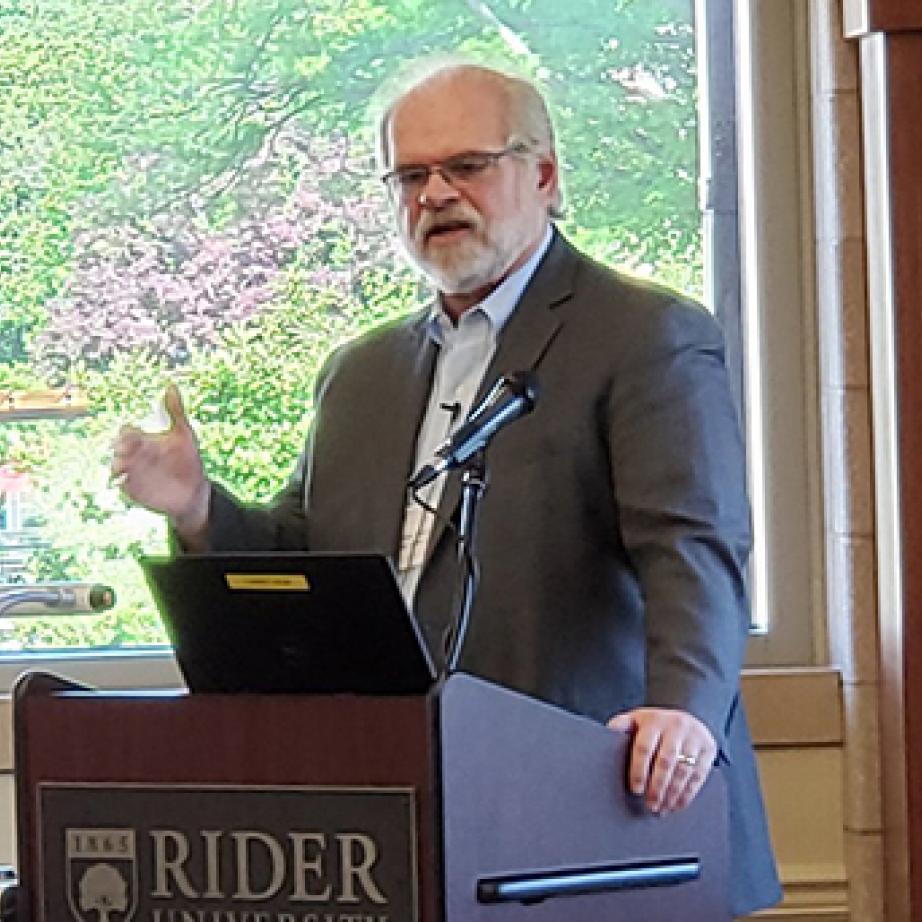Wednesday, Jul 17, 2019
The Literacy Specialist Symposium brought together 60 educators to network and learn together
by Keith Fernbach
About 60 educators from New Jersey met at Rider University on May 15 for the first-ever Literacy Specialist Symposium at Rider. The event brought together specialists to connect with each other, grow professionally and learn about key issues in literacy education.
“Very often there is just one reading specialist or literacy specialist per school and they are often seen as both a teacher leader and as a resource," says Dr. Heather Casey, a professor in Rider’s College of Education and Human Services and the coordinator of the school’s graduate-level literacy concentration, was instrumental in organizing the event. "But if you're the only one in the building, it can be a lonely position. So there’s real value in having other colleagues with whom you can collaborate. I really do believe that a lot of learning happens when there’s that sense of community.”
Literacy specialists (also called reading specialists) are educators who perform a number of important roles within a school system, including working with students and assisting their colleagues by modeling effective strategies for helping children with literacy learning.
Russ Walsh, an adjunct professor at Rider, as well as an alumnus of Rider’s literacy program and one of the leaders in the field, kicked off the day with a keynote address, “Follow the Child, Not the Program,” which was centered on the idea of tailoring instruction to students’ individual needs.
Following the keynote, there were a series of roundtable discussions moderated by faculty members from Rider’s College of Education and Human Services and instructors affiliated with the National Writing Project at Rider University. Topics included “Literacy Outreach and Advocacy,” “Supporting All Readers,” “Special Education,” “Teachers as Writers” and others.
Dr. Casey says the objective of the roundtables was to give everyone — discussion leaders as well as attendees — the opportunity to contribute. “The real value of the day was in educators supporting other educators,” she says. “So even though we had people acting to facilitate discussions who were quite expert in what they do, the idea that people could come to the table with their own thoughts and ideas to share was really empowering for learners and for teachers.”
The day concluded with a panel discussion where attendees were able to share professional successes as well as talk about common challenges they face in their jobs.
According to Dr. Casey, another reason for holding the symposium was to promote the literacy/reading specialist profession itself.
“It's not a position that's required in every district, yet it serves a key role in supporting effective instruction in literacy,” she says. “I think it's really important to advocate for the position and for people to understand the value of literacy/reading specialists.”
Casey says that because literacy specialists spend a portion of their time instructing colleagues and not working 100% directly with children, the position is more vulnerable to budget cuts. “Forums such as this give us an opportunity to spotlight everything they do,” she says.
While the next symposium may not take place for another year, Dr. Casey believes the benefits from this year’s event will be felt much sooner. “There was a lot of networking happening within that day, and attendees now have colleagues whom they can reach out to at any time," she says. "So even though it's perhaps a once-a-year event, the conversation sparked from that one day will hopefully form connections that people can rely on throughout the year.”

